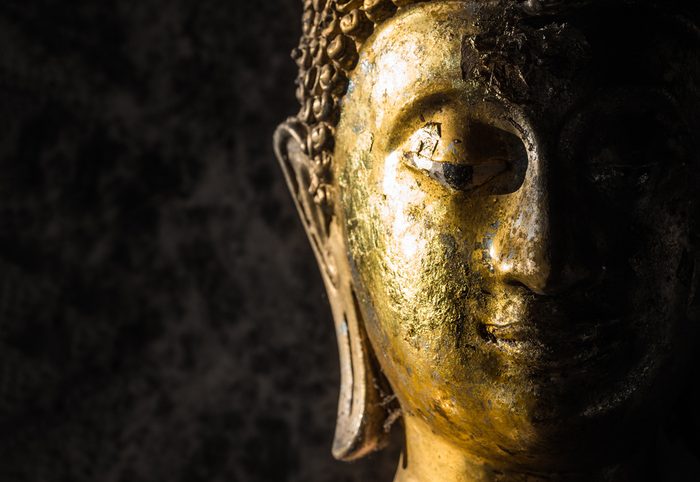
Buddhism is a religion—maybe
Some followers of Buddhism consider it to be a religion, while others think of it as a philosophy, practice, or way of life. The reason for the discrepancy is that there are many schools of Buddhism; while the practices and ideologies contained within each may sometimes contradict each other, none are considered wrong. “Some interpretations and translations are rooted in misunderstanding the original languages of texts or are the product of scholars interpreting practices they may not understand or have experience with,” explains Hector Marcel, president of Three Jewels, a meditation, yoga, and Buddhism studio in New York. “The discrepancies also arose from the rapid spread of Buddhism throughout many cultures and countries. As Buddhism gained popularity, each culture emphasized certain principles, rituals or perspectives while muting others.”
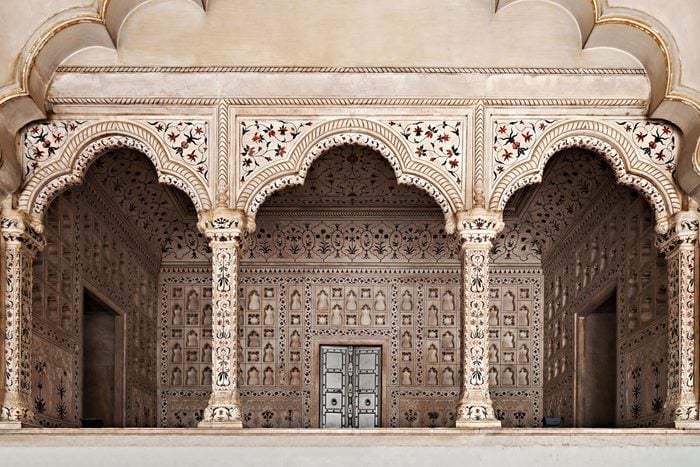
Buddhism started in India
Many people assume that Buddhism started in Tibet, probably because the most visible face of Buddhism in America is the Dalai Lama, a religious leader who practices and teaches Buddhism from Tibet. However, the first Buddha, Siddhartha Gautama, was born in India around 567 B.C.E. Over the course of many centuries, Buddhism swept over Tibet and much of Asia, as well as other parts of the world.
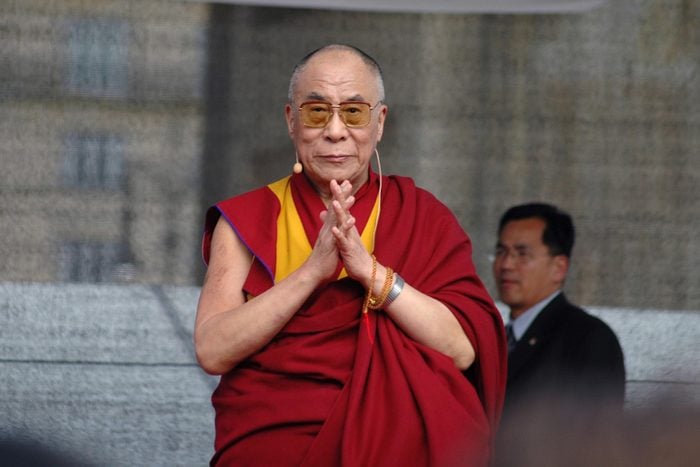
So who is the Dalai Lama?
The current Dalai Lama is the 14th to serve as a monk in the Gelug School of Tibetan Buddhism. He is thought to be the present incarnation of the last 13 Dalai Lamas of Tibet. On orders of the Tibetan government in 1937, a search party went out to find the Dalai Lama. Based on signs and visions, they discovered the current Dalai Lama as a toddler, living with his family, in a rural farming village. In 1940, he became the official spiritual leader of Tibet. Today, he is a bit of a spiritual rock star as well as a religious figure and is known for saying inspirational words of wisdom.

Karma is a you-know-what
The Buddhist concept of karma has been misinterpreted and is often misunderstood, says Marcel. “The technical definition of karma is, ‘The movement of the mind and what follows.’ karma is wrongly associated with good and bad luck or divine intervention to reward or punish someone for the way they treated others. The term in modern western thought has a flavor of ‘you got what you deserved,’ with an often negative connotation. But karma is both a cause and an effect; you create it and experience it, Marcel explains. “Everything we do, say, and think leaves traces, imprints, or karmic seeds in our mind, which, like all seeds, must necessarily bring about a similar result. The result comes later, and is often much larger,” he says.

Mindfulness is a good thing, but may also be a misinterpretation
The concept of mindfulness, living in the moment and paying attention to what is going on around you, is closely associated with Buddhism, but the word itself may not reflect the exact meaning it was meant to. “Most Buddhist scholars agree ‘mindfulness’ is a gross mistranslation of the word ‘sati,'” says Crystal Beckwith, Reiki practitioner and energy coach. “Buddhism is actually more about an empty mind; sati is better translated as awareness.” Find out how to be more mindful in your daily life.

Empty your mind, fill your heart
Empty mind, or emptiness, is a Buddhist concept that refers, in part, to the removal of preconceived notions or assumptions that we tack onto experiences in an attempt to make sense of them or to understand them better. “Emptiness is probably the most misunderstood term and one of the most pivotal concepts of Buddhist thought,” says Marcel. “If we understand emptiness (intellectually at first) and then viscerally (through meditation and practice,) it becomes the key that unlocks every single teaching of the Buddha and brings real life and meaning to thousands of other contemplative and religious practices,” he adds. “People erroneously think that emptiness means nothingness, pitch blackness, darkness, or that nothing matters. This is not true. Emptiness refers to a lack of something that was never there in the first place,” he adds.
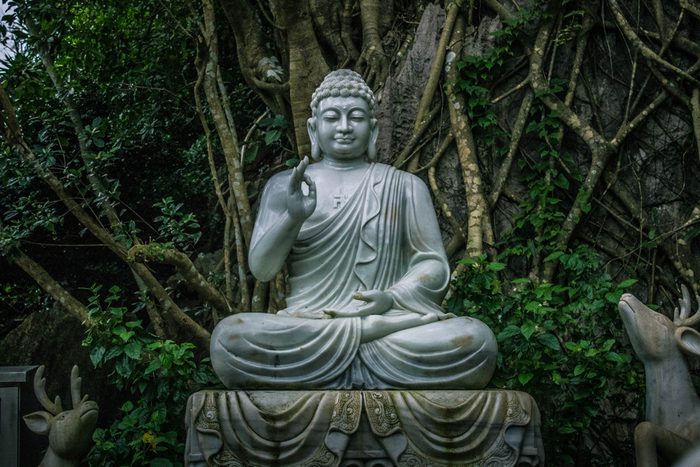
Buddha wasn’t chubby
Despite the stature of the laughing statue that you see at your favorite Chinese food takeout place, the first Buddha was known to survive on one grain of rice per day. and ancient texts refer to him as being so skinny that his bones showed. So how did the commonplace depiction of a rotund, laughing Buddha become so associated with this historical figure? “When Buddhism spread to China, the image of the Buddha was conflated with a Chinese God, Budai, who is fat, bald, and travels with a large sack,” says Jim Wasserman, a retired comparative religion professor and co-owner (with his wife) of Your Third Life. “Chinese immigrants were the first to bring the notion of Buddhism to America, so people thought that this version of a fat Buddha was the only one. If one looks at the older, Theravadan branch of Buddhism (common to Thailand or India), one sees the older, slimmer Buddha.” Buddha is just one of 10 historical figures you’ve been picturing all wrong.

Not all Buddhists are vegetarians
Many, if not most Buddhists are vegetarian and believe that animals are nonhuman people who cannot be killed for food. That said, according to the Humane Society’s Buddhist Teachings on Animals, there are exceptions to this ideology. In ancient times, eating meat was strictly forbidden by Buddha, except in the case of monks, who traditionally begged for the one meal they ate each day. The monks were allowed to eat meat if it was placed in their bowls, provided that they had no reason to believe that an animal was specifically killed in order to provide them with food. Some modern-day Buddhists interpret this practice so as to believe that they can eat meat from supermarkets and restaurants, for this same reason.
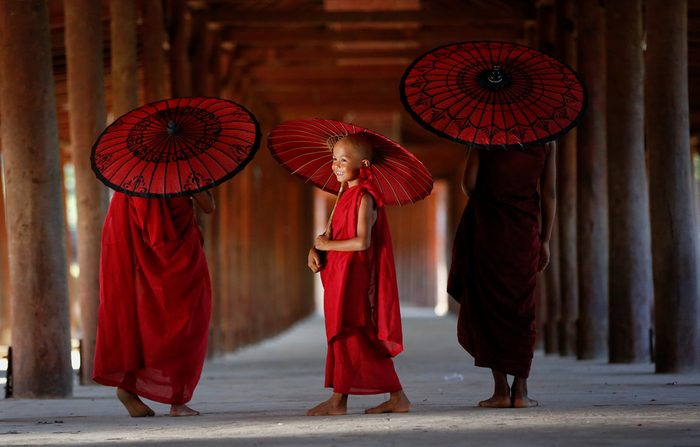
Not every Buddhist lives like a monk
Believe it or not, many Buddhists own cars, homes, jewelry, and more. “Because so many vocal Buddhists in America are practicing monks, or wealthy people rejecting materialism to go meditate, we assume all Buddhists are like that,” says Wasserman. “Travel to a Buddhist country, and you will not see people rejecting the material world, but rather, praying to win the lottery or be successful, just like other religions,” he adds.
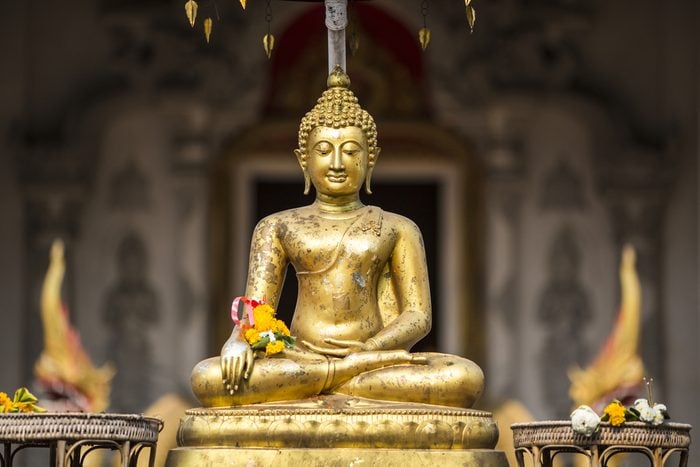
Be respectful with images of Buddha and Buddhist symbols
Buddhist books also should not be placed on the floor, because it is considered disrespectful., says Tashi Dhargyal, a Buddhist Thangka master and Tibetan artist. He also recommends steering clear of products that feature an image of Buddha on their packaging because the only appropriate way to dispose of an image of a Buddha is to burn it or discard it in a body of water. “Tossing it in a trash can is not only disrespectful, but it can also bring bad karma,” he says. Lastly, if you want a tattoo of a Buddhist symbol, get it at heart-level or above as lower on the body is considered disrespectful.

Buddhists do not believe in God
Buddha is not considered to be God or even Godlike. Buddhism differs from the core concept of most Western religions in this way. As stated by Narada Thera on Buddhism in a Nutshell, Buddhism does not center around worship or allegiance to a higher power, such as God. Buddhists do not pray to any type of gods, statues, natural phenomenon, or other deities. Rather, Buddhists look inward to strive for personal insight, and spiritual growth.
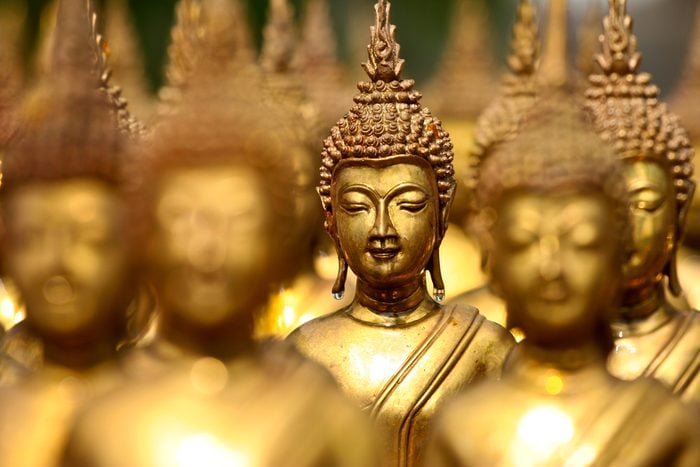
There can be many Buddhas—and that includes you
Grasping the core concepts of Buddhism may take, well, a Buddha, but that doesn’t mean that everyday people can’t aspire to achieve the serenity and understanding that Buddha is able to possess. “Buddha literally translates into ‘the awakened one.’ The term “Budh” means awakened and “Buddh-a” means one who woke up from illusion. It implies that anyone can reach an awakened state. You, too, can be Buddh-a,” explains Marcel. Buddhist or not, being kind to others improves their life—and yours.
